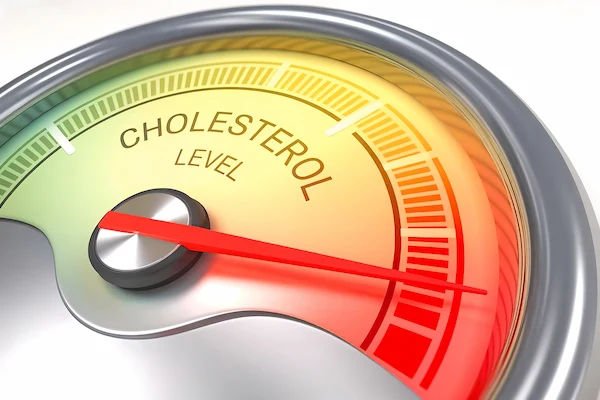- Female
- 27 Years
- 29/01/2025
I'm really worried about my lipid profile results. My triglycerides and total cholesterol are both at 172, VLDL is 95.5, and HDL is 42. Plus, my TMT test showed ischemia. I'm experiencing some issues with my body. What kind of treatment should I consider? Would really appreciate your advice on this.
Answered by 1 Apollo Doctors
based on your lipid profile results and the presence of ischemia on your TMT test, it indicates that you have high levels of VLDL cholesterol and triglycerides, and low HDL cholesterol. To help improve your lipid profile and reduce the risk of cardiovascular issues, I recommend the following treatment: - Start taking Atorvastatin (brand name Lipitor) 20mg once daily to lower your total cholesterol levels. - Add Fenofibrate (brand name Tricor) 145mg once daily to specifically target and lower your triglyceride levels. - Increase your intake of Omega-3 fatty acids by consuming foods like fatty fish or consider taking Omega-3 supplements. - Make lifestyle changes such as following a healthy diet low in saturated fats and sugars, engaging in regular physical activity, and avoiding smoking. For your body problems, it would be best to consult with a healthcare provider for a proper evaluation and diagnosis.
Dr. Ranjith Suggests...
Consult a Cardiologist
Answered 04/07/2025
0
0

More Cardiology Health Queries
View allI'm feeling this weird pain and burning sensation in my chest, along with some restlessness. It's not happening all the time, but it's definitely concerning. Could you please suggest what might be going on and what I should do about it?
It sounds like you might be experiencing acid reflux or mild gastritis, which can cause chest discomfort and burning. Avoid spicy or oily foods, eat smaller meals, and don't lie down immediately after eating. If the pain persists or worsens, consult a doctor for further evaluation.
Answered by 1 Apollo Doctors
I've recently had an angioplasty to clear a blockage in my main valve. It's been three days now, and I've started feeling some pain in my left shoulder after sitting for a few hours. I haven't been lifting any heavy objects or anything like that. Is this something related to my heart? Should I be worried? Please let me know what's going on.
Just with a complaint of shoulder pain we cant rule out heart related issues visit your physician for evaluation
Answered by 1 Apollo Doctors
I'm really puzzled about my friend's sudden passing. He was perfectly fine until about 10:30 in the morning, but out of nowhere, he had a severe cardiac arrest and died by 10:50. In the 48 days leading up to his death, he rarely ate food from home. I can't help but wonder if there might be anything like a slow poison that could have affected him. Could you shed some light on what might have happened?
While I understand your concern about potential poisoning given the changes in his eating habits, sudden cardiac arrest can happen without warning even in people who appear healthy. The period of irregular eating could be related to various factors like stress, depression, or underlying health issues. If you have serious concerns about the circumstances, I would encourage you to share them with the relevant authorities and discuss with his family about requesting an autopsy if one hasn't been performed. Most importantly, please make sure you're getting support during this difficult time - losing someone suddenly is incredibly challenging, and it's natural to have questions and seek answers about what happened.
Answered by 1 Apollo Doctors
Disclaimer: Answers on Apollo 247 are not intended to replace your doctor advice. Always seek help of a professional doctor in case of an medical emergency or ailment.




